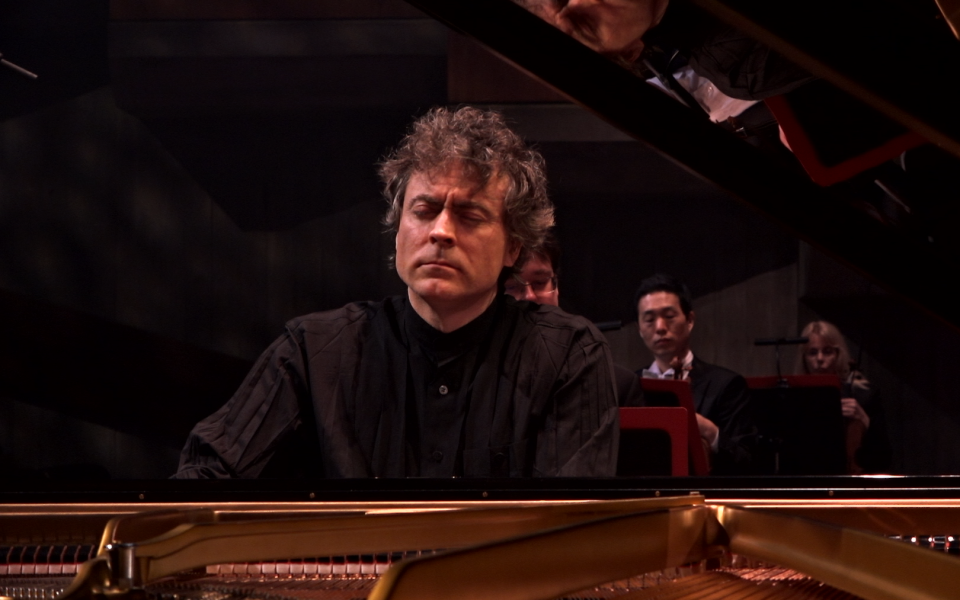Meet pianist Paul Lewis

Ahead of our performance of Mozart Piano Concerto No.27, we spoke with soloist Paul Lewis about what makes a good online concert, learning new repertoire during a pandemic and what children teach us about classical music.
Read the full programme notes.
You have performed with the Philharmonia many times in the past, and we are very happy to welcome you back. What are you looking forward to?
The Philharmonia is a fantastic orchestra, with the most friendly players. It was the first London orchestra that I played with back in 1994 – still a student. It was the final of the World Piano Competition, and I was playing Rachmaninov’s Piano Concerto No. 3. (It seems like a completely different life – I guess it was really).
What has it been like making music in the pandemic?
A bit solitary really. Lots of practice, lots of ups and downs. When the pandemic started, I really hit the ground running and tried to learn as much repertoire as I could. There were a lot of Mozart concertos that I hadn’t learned and wanted to. But also, a lot of things that I wouldn’t normally play – like the Copland Piano Concerto. The pandemic has presented an opportunity to get your fingers and your head around a lot of stuff that you wouldn’t otherwise have had the time to do.
In what ways are you optimistic about the future of classical music?
Music needs an audience, needs people, and I think people need music. I’m optimistic about the future of classical music because we need these experiences: once we’re able to be 2000 people in a concert hall again, we will be so hungry for it. Nothing replaces the experience of live music, of having someone create it, in front of you. I think we are desperate for that right now. And that’s what will keep it alive, the need for that personal experience.
“The Philharmonia is a fantastic orchestra, with the most friendly players. It was the first London orchestra that I played with back in 1994 – still a student.”

You work to bring classical music to younger audiences, something we endeavour to do at the Philharmonia as well. What can we do to make concerts attractive to younger audiences? What do you learn from playing for children?
My wife and I run the Midsummer Chamber Music Festival and in the second year we gave a school concert for a class of seven and eight-year-olds. I played the last movement of Schubert’s Piano Sonata No. 14 in A minor, D. 784, which is one of the most distressed and austere pieces of music, and the response to this incredibly grown-up music was absolutely staggering. I realised that you can just give children great music and there’s no barrier at that age. We should challenge children and not be guided by preconceptions about what they may or may not like.
What makes a good online concert?
A good online concert has to be prerecorded. When the audience is physically there, the little things that might go astray, the odd split note or something that’s slightly mistimed or out of place, those things just don’t matter – you don’t even hear them, because you’re in the experience. Whereas on a screen, you have to consider how it comes across without that physical experience, you need the opportunity to review, maybe do a few patches. And good camera work, with a variety of camera angles that takes into consideration what’s going on in the music, really helps.
“Nothing replaces the experience of live music, of having someone create it, in front of you. I think we are desperate for that right now. And that’s what will keep it alive, the need for that personal experience.”

Upcoming online concerts

